The Highlanders who don't want to be forgotten in the election
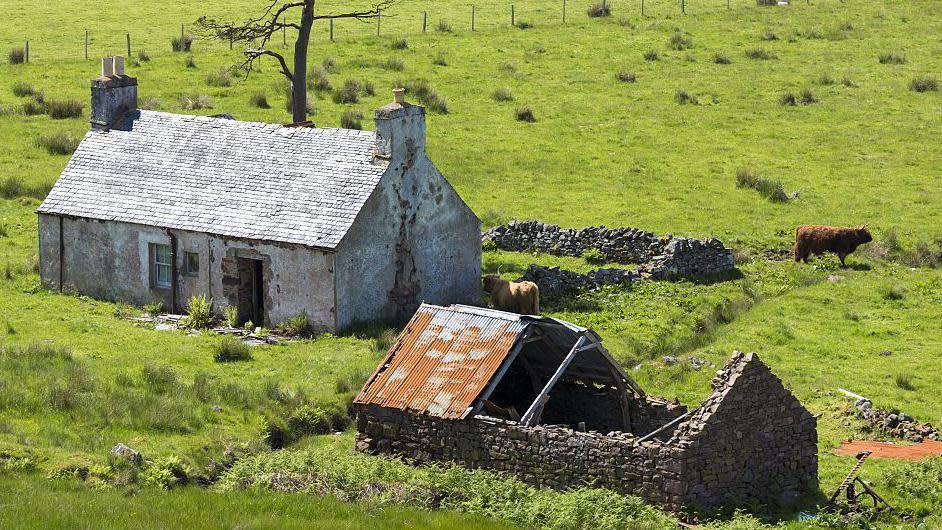
Scotland is a land of stunning scenery.
It’s hard to beat Queen's View over Loch Tummel in autumn, a frozen Loch Morlich sparkling in the winter sun, and pretty much anywhere in Assynt, at any time.
But the Highlands are much more than a collection of pretty places for tourists to photograph.
They are home to real people with real problems, who often feel a long way from politics in Edinburgh, let alone London.
For many Highlanders, the biggest issues in this general election campaign are the high cost of living, a lack of key workers, and the struggle to find an affordable home.
"Housing is so difficult to find here and it is so expensive," says 17-year-old Nuala MacDonald, who has just left Ullapool High School in Wester Ross.
Ms MacDonald lives with her family in the village of Achiltibuie which gazes out at the Summer Isles from Scotland's jagged north-west coast.
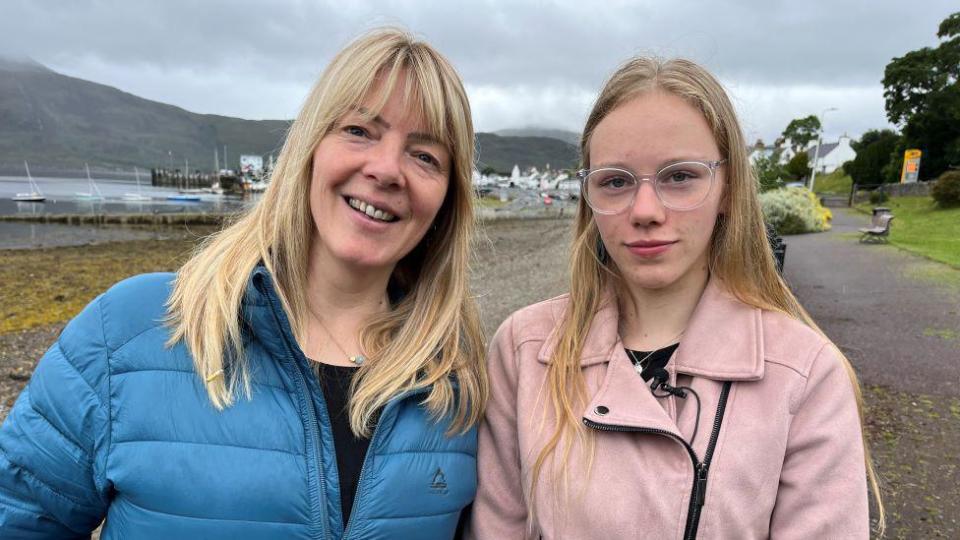
She hopes to leave home soon to study aerospace engineering in Glasgow or Edinburgh but can't help wondering whether she and her friends will be back.
It is a subject they avoid, she says, because "it is a really sad fact that most of us probably aren't going to end up being able to live here".
In towns and villages across rural Scotland that is a familiar story.
Forty-four miles south of Achiltibuie as the sea eagle soars – but nearly three hours and more than 100 miles by road – lies Applecross.
The peninsula is home to 230 people, spread out over an area bigger than the city of Liverpool, which has a population of half a million.
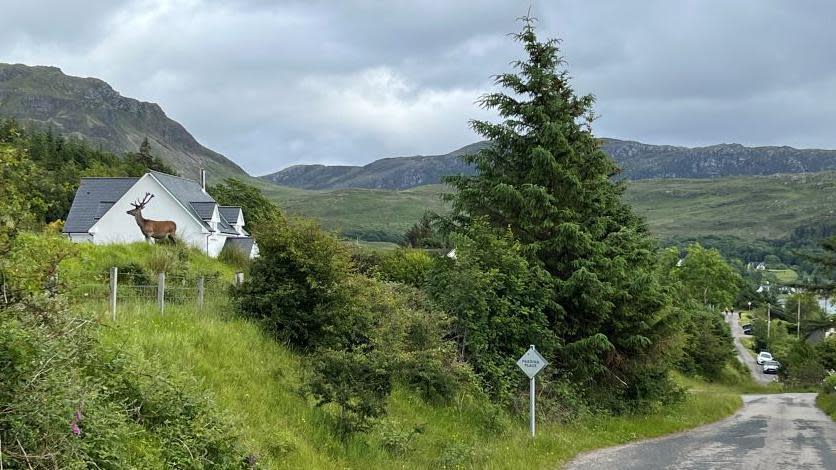
"There's lots of houses on the peninsula here, but 45% of those houses are short-term lets, so second homes," says Megan MacInnes who runs the Applecross Community Company, a local development trust.
“Eventually the whole viability of this really fragile community becomes completely untenable if we can't actually house people who want to live here," she adds.
The Highland housing crisis has contributed to a shortage of the people who make a place tick.

A third of children's social worker posts in the Highlands are unfilled, for example, while the British Medical Association has warned of a severe shortage of rural GPs.
"We need people to come and live here," says Nuala MacDonald's mother, Lisa, who feels that discussion about immigration in the election campaign has been almost entirely negative.
"Brexit has been an absolute disaster because loads of hospitality businesses can't function without European workers," she says.
The UK's departure from the European Union in January 2020, against the wishes of a majority of Scottish voters, ended freedom of movement between the UK and 27 other countries.
The hotelier, Sir Rocco Forte, has argued that Brexit provides an opportunity to cut taxes on tourists and to loosen regulations to promote growth.
But the Scottish Tourism Alliance (STA) says "Brexit continues to cause serious problems" for an industry which contributed £6.5bn to the Scottish economy in 2022 and employs nearly 230,000 people, according to the Scottish government.
'Scotland-specific visa'
The STA is calling for the introduction of a "Scotland-specific visa" to help "rural and island communities struggling to attract and retain tourism and hospitality workers".
The 2022 census confirmed that, without migration, Scotland's population would have fallen over the previous decade, as well as ageing even more rapidly.
As it was, the share of the Highland population aged 14 and under fell from 18.1% in 2001 to 14.8% in 2022. In the same period, the cohort aged 65 and over jumped from 16.3% of the population to 23.7%.
Marcus MacDonald, based in Ullapool but working away in the merchant navy, can believe it.
Speaking to BBC News from Rotterdam, the 31-year-old estimates that only five people from his high school class of 45 remain in the Ullapool area.
Tourism, he says, is both "very, very welcome" and important for the economy of the north-west Highlands but, he says, it has downsides, notably in the pressure on housing stock.
"I don't think it's good for the area, either economically or culturally, to be so totally reliant on visitors treating the entire area like a Butlin's or a Disneyland," says Mr MacDonald.
"It changes the character of the area from a kind of working demographic to something more like a retirement demographic," he adds.

Faced with these challenges, Highlanders are far from helpless. Remoteness often breeds resilience and the Applecross community company has been seeking out its own solutions.
It recently finished building three houses, the area's first new affordable houses in 18 years.
That was welcome but the small scale of the development underlines how hard it is for small communities to solve big problems without outside help.
Highland Council says £2.8bn of additional investment is needed to double the pace of housebuilding in order to meet a need for 24,000 new homes in the region over the next 10 years.
Since 1999, housing has been devolved to the Scottish Parliament but the Scottish government's overall budget depends on decisions taken at Westminster.
The road out of Applecross winds up, up and over the Bealach na Bà (Gaelic for pass of the cattle) in a series of heart-stopping hairpin bends.
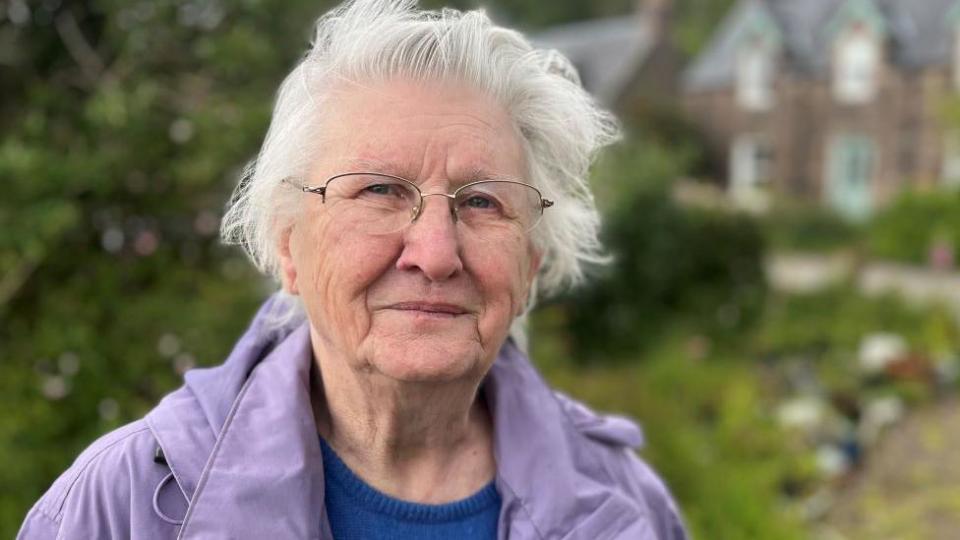
On the other side of the pass is the village of Kishorn, where Helen Murchison is gesturing towards some old stone cottages.
"These two houses here and the house on the other side of me are all tourist accommodation," she explains.
Mrs Murchison can trace her family’s roots here back to 1819 and has been on the Lochcarron Community Council for 50 of her 90 years.
She says Highland history is bound up with the land.
"The Highlands were traditionally Lib Dem," says Mrs Murchison, because the Liberals "supported the crofting communities" while "the central belt was red hot Labour" as mining and shipbuilding were the main concerns.
In the Highlands, the waves of forced clearances of people to make way for livestock in the 18th and 19th centuries still form part of the political discourse.
Lisa MacDonald says the Liberals of William Gladstone's era are still regarded with fondness for the 1886 Crofters Act which meant "security of tenure for some of the most harshly-treated people in society at the time."
High energy costs
However, Ms MacDonald and Mrs Murchison offer different perspectives on the virtues of today's Liberal Democrats.
Mrs Murchison is leaning towards voting for them while Ms MacDonald is disillusioned with Nick Clegg's decision to join the Conservatives at Westminster in a coalition government from 2010 to 2015.
Both, however, agree that the cost of living is a central concern at this election.
Mrs Murchison says high energy costs have been especially tough in those rural areas which rely on electricity or oil for heating, which can be costlier than gas.
Expensive petrol and diesel, along with soaring motor insurance costs, also have a disproportionate impact, she says.
"A car is not a luxury in an area like this," points out Mrs Murchison, who lives six miles from the nearest shop.
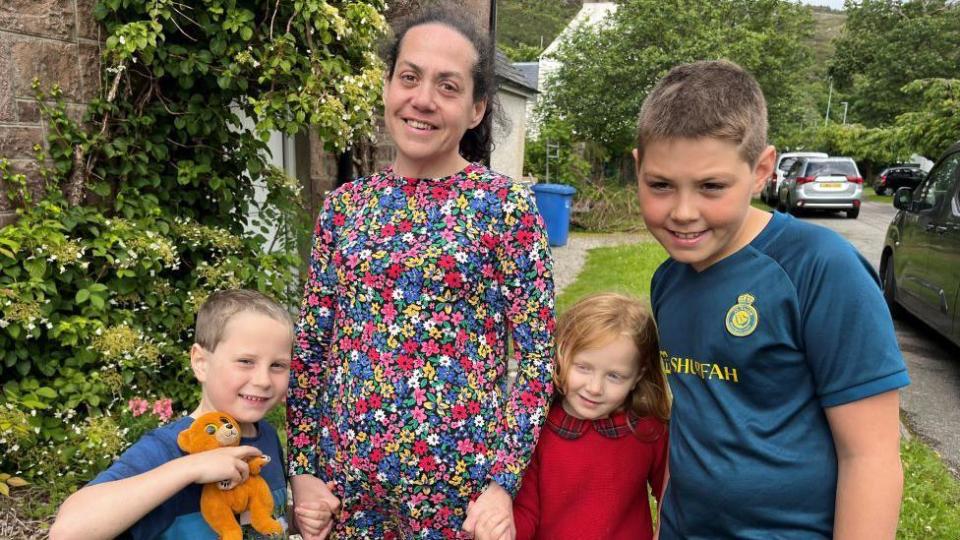
In the old fishing and ferry port of Ullapool, Katy Campbell, a mother-of-five, is also worried about prices.
Originally from Rhyl in North Wales, she moved to Wester Ross with her husband 24 years ago.
"Because everything has just gone up exponentially we're actually no better off even though our incomes may be treble than what they were 20 years ago," she says.
Ms Campbell says some of the effects of the cost of living crisis have been positive. She feels eating less meat is healthier and she has spent more time cooking at home with her family.
Still, she adds: "It can be really hard having to say to the children, no, we can't afford that..
For Lisa MacDonald, solutions to the Highlands' problems depend on adequate funding of high-quality public services through taxation.
"We're beginning to see the fraying and the crumbling of the structure of society itself because of lack of investment and more than a decade of austerity," she argues, adding: "The erosion of the public realm is a thing that concerns me greatly."
Back in Applecross, Megan McInnes has an even simpler message for politicians. "All we would ask," she says, "is that they don't forget about us."


